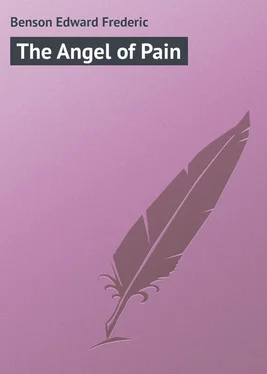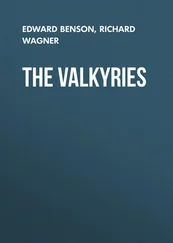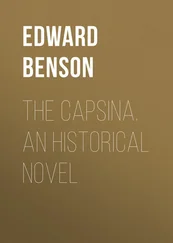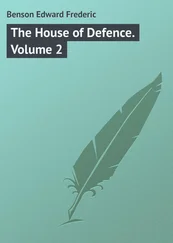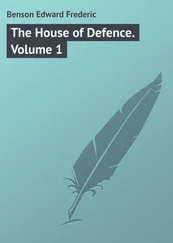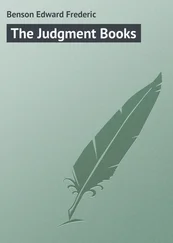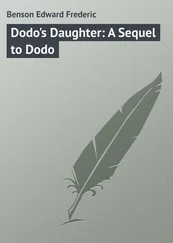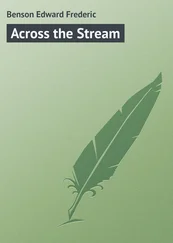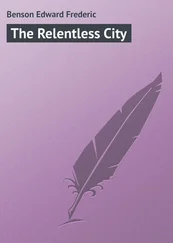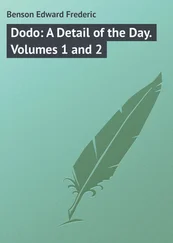Edward Benson - The Angel of Pain
Здесь есть возможность читать онлайн «Edward Benson - The Angel of Pain» — ознакомительный отрывок электронной книги совершенно бесплатно, а после прочтения отрывка купить полную версию. В некоторых случаях можно слушать аудио, скачать через торрент в формате fb2 и присутствует краткое содержание. Жанр: foreign_prose, на английском языке. Описание произведения, (предисловие) а так же отзывы посетителей доступны на портале библиотеки ЛибКат.
- Название:The Angel of Pain
- Автор:
- Жанр:
- Год:неизвестен
- ISBN:нет данных
- Рейтинг книги:5 / 5. Голосов: 1
-
Избранное:Добавить в избранное
- Отзывы:
-
Ваша оценка:
- 100
- 1
- 2
- 3
- 4
- 5
The Angel of Pain: краткое содержание, описание и аннотация
Предлагаем к чтению аннотацию, описание, краткое содержание или предисловие (зависит от того, что написал сам автор книги «The Angel of Pain»). Если вы не нашли необходимую информацию о книге — напишите в комментариях, мы постараемся отыскать её.
The Angel of Pain — читать онлайн ознакомительный отрывок
Ниже представлен текст книги, разбитый по страницам. Система сохранения места последней прочитанной страницы, позволяет с удобством читать онлайн бесплатно книгу «The Angel of Pain», без необходимости каждый раз заново искать на чём Вы остановились. Поставьте закладку, и сможете в любой момент перейти на страницу, на которой закончили чтение.
Интервал:
Закладка:
“So go on with what you were saying at dinner, Tom,” said Evelyn. “Really, people who are friends ought to keep a sort of circulating magazine, in which they write themselves up and send it round to the circle. In any case, you of the three of us are most in arrears. What have you done besides growing so much younger?”
“Do you really want to know?” asked he.
“Yes.”
Evelyn rose as he spoke and squirted some soda-water into his glass. They were sitting in the square of light illuminated by the lamps of the room inside, and what passed was clearly visible to all of them.
“You must sit quiet then,” said Tom, in his low, even-toned voice, “or you will frighten them.”
“Them? Whom? Are you going to raise spirits from the vasty deep?” asked Philip.
“Oh, no; though I fancy it would not be so difficult. No, what I am going to show you, if you care to see it – it may take ten minutes – is a thing that requires no confederates. It is not the least exciting either. Only if you wish to see what I have done, as you call it, though personally I should say what I have become, I can give you an example probably. Oh, yes, more than probably, I am sure I can. But please sit still.”
The night was very windless and silent. In the woods below a nightingale was singing, but the little wind which had stirred before among the garden beds had completely dropped.
“Have you begun?” asked Evelyn. “Or is that all? Is it that you have been silent for a year?”
“Ah, don’t interrupt,” said the other.
Again there was silence, except for the bubbling of the nightingale. Four notes it sang, four notes of white sound as pure as flame; then it broke into a liquid bubble of melodious water, all transparent, translucent, the apotheosis of song. Then a thrill of ecstasy possessed it, and cadence followed indescribable cadence, as if the unheard voice of all nature was incarnated. Then quite suddenly the song ceased altogether.
There was a long pause; both Evelyn and Philip sat in absolute silence, waiting. Tom Merivale had always been so sober and literal a fellow that they took his suggestion with the same faith that they took the statements of an almanack – it was sure to be the day that the almanack said it was. But for what they waited – what day it was – neither knew nor guessed.
Then the air was divided by fluttering wings; Tom held his hand out, and on the forefinger there perched a little brown bird.
“Sing, dear,” said he.
The bird threw its head back, for nightingales sing with the open throat. And from close at hand they all three heard the authentic love song of the nightingale. The unpremeditated rapture poured from it, wings quivering, throat throbbing, the whole little brown body was alert with melody, instinctive, untaught, the melody of happiness, of love made audible. Then, tired, it stopped.
“Thank you, dear brother,” said Tom. “Go home.”
Again a flutter of wings whispered in the air, and his forefinger was untenanted.
“That is what I have done,” he said. “But that is only the beginning.”
Evelyn gave a long sigh.
“Are you mad, or are we?” he asked. “Or was there a bird there? Or are you a hypnotist?”
He got up quickly.
“Phil, I swear I saw a bird, and heard it sing,” he said excitedly. “It was sitting there, there on his finger. What has happened? Go on, Tom – tell us what it means.”
“It means you are the son of a monkey, as Darwin proved,” said he, “and the grandson, so to speak, of a potato. That is all. It was a cousin of a kind that sat on my finger. Philip, with his gold and his Stock Exchange and his business generally, does much more curious things than that. But, personally, I do not find them so interesting.”
Philip, silent as was his wont when puzzled, instead of rushing into speech, had said nothing. But now he asked a question.
“Of course, it was not a conjuring trick,” he said. “That would be futility itself. But you used to have extraordinary hypnotic power, Tom. I only ask – Was that a real nightingale?”
“Quite real.”
Evelyn put down his glass untasted.
“I am frightened,” he said. “I shall go to bed.”
And without more words he bolted into the house.
Philip called good night after him, but there was no response, and he was left alone with the Hermit.
“I am not frightened,” he said. “But what on earth does it all mean? Have a drink?”
Tom Merivale laughed quietly.
“It means exactly what I have said,” he answered. “Come down to my home sometime, and you shall see. It is all quite simple and quite true. It is all as old as love and as new as love. It is also perfectly commonplace. It must be so. I have only taken the trouble to verify it.”
Philip’s cool business qualities came to his aid, or his undoing.
“You mean you can convey a message to a bird or a beast?” he asked.
“Oh, yes. Why not? The idea is somehow upsetting to you. Pray don’t let it upset you. Nothing that happens can ever be upsetting. It is only the things that don’t happen that are such anxieties, for fear they may. But when they have happened they are never alarming.”
He pushed his chair back and got up.
“Ah, I have learned one thing in this last year,” he said, “and that is to be frightened at nothing. Fear is the one indefensible emotion. You can do nothing at all if you are afraid. You know that yourself in business. But whether you embark on business or on – what shall I call it? – nature-lore, the one thing indispensable is to go ahead. To take your stand firmly on what you know, and deduce from that. Then to test your deduction, and as soon as one will bear your weight to stand on that and deduce again, being quite sure all the time that whatever is true is right. Perhaps sometime the world in general may see, not degradation in the origin of man from animals, but the extraordinary nobility of it. And then perhaps they will go further back – back to Pagan things, to Pan, the God of nature.”
“To see whom meant death,” remarked Philip.
“Yes, or life. Death is merely an incident in life. And it seems to me now to be rather an unimportant one. One can’t help it. Whereas the important events are those which are within one’s control; one’s powers of thought, for instance.”
Philip rose also.
“And love,” he said. “Is that in one’s control?”
Tom took a long breath.
“Love?” he said. “It is not exactly in one’s control, because it is oneself. There, the dear bird has got home.”
And again from the trees below the bubble of liquid melody sounded.
THIRD
EVELYN DUNDAS was sitting next morning after breakfast on the terrace, where what he alluded to as “the nightingale trick” had been performed the evening before, in company with the conjurer who had performed it. Philip and Madge Ellington had just gone down to the river, Lady Ellington who was to have accompanied them having excused herself at the last moment. But since a mother was in closer and more intimate connection with a girl than a mere chaperone, she had seen not the smallest objection to the two going alone. Indeed she had firmly detained Evelyn by a series of questions which required answers, from joining them, and, though deep in a discussion about art, she had dropped it in its most critical state when she judged that the other two had been given time to get under way. It had required, indeed, all her maternal solicitude to continue it so long, for she cared less for art or Evelyn’s theories about it than for a week-old paper.
Like most artists, Evelyn had a somewhat egoistic nature, and since his personality was so graceful and interesting, it followed that many people found his talk equally so, especially when he talked about himself. For his egoism he had an admirably probable explanation, and he was at this moment explaining it to Tom Merivale, who had made the soft impeachment with regard to its undoubted existence.
Читать дальшеИнтервал:
Закладка:
Похожие книги на «The Angel of Pain»
Представляем Вашему вниманию похожие книги на «The Angel of Pain» списком для выбора. Мы отобрали схожую по названию и смыслу литературу в надежде предоставить читателям больше вариантов отыскать новые, интересные, ещё непрочитанные произведения.
Обсуждение, отзывы о книге «The Angel of Pain» и просто собственные мнения читателей. Оставьте ваши комментарии, напишите, что Вы думаете о произведении, его смысле или главных героях. Укажите что конкретно понравилось, а что нет, и почему Вы так считаете.
